25 Ways to Not Look Older After 50, Say Experts
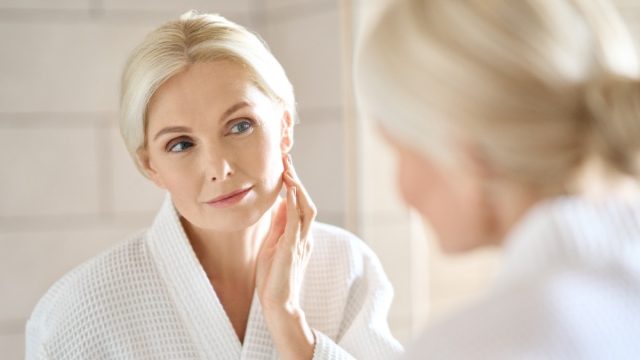
Regardless of gender, genetics, or current health and wellness status, it's a given fact that our bodies change in our 50s. Even Superman got old. While you might not be able to stop the aging process—mother nature is in control, after all—you can certainly slow it down. The first step to getting in front of the inevitable changes is to learn about them. Body Network asked the top physicians and health and fitness experts in the country to explain all the ways our bodies change as we hit the pivotal age of 50—and how we can respond to the changes in the best way possible. Read on to find out more.
Your Metabolism Slows Down Even More
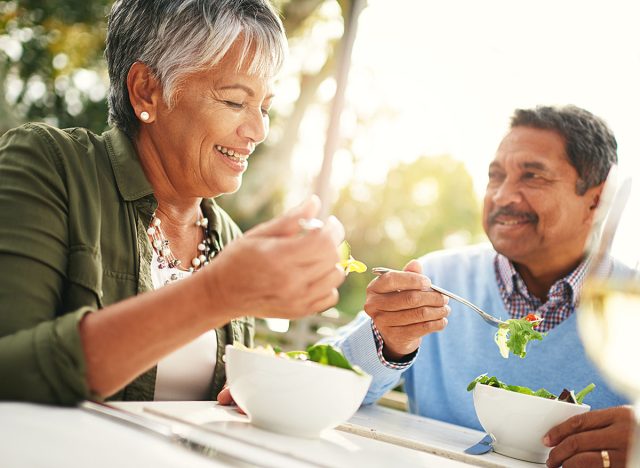
While your metabolism starts slowing down before 50, once you hit your 50s, you will notice it is significantly slower than your younger years. "This is simply the normal aging process," points out Matthew Mintz, MD, FACP.
💪🔥Body Booster: While regular exercise can delay this slowdown a bit, it is hard to compete with father time. "The most important thing about a slower metabolism is that it will take fewer calories to start gaining weight," explains Dr. Mintz. For example, if you had a 2,000-calorie diet during your 30s and 40s and kept your weight perfectly stable, that same exact 2,000-calorie diet may lead you to gain weight in your 50s and 60s. "This means you need to eat less to maintain your weight and restrict your calories even more if you wish to lose weight," he says.
You Might Have Digestive Issues As A Result Of Hormonal Changes
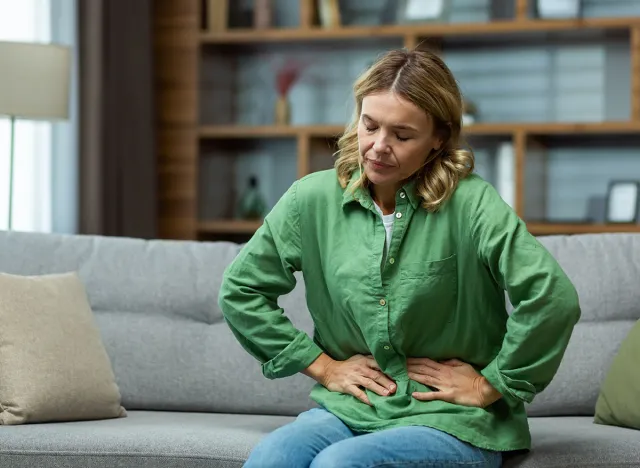
Because the average age of menopause is just over 51, many of the changes for women are hormonal, points out Women's Hormone Balancing Fitness Expert Debra Atkinson, MS, CSCS, Founder & CEO, Flipping 50. "They'll experience changes in gut health that might show up as bloating, gas, or constipation because the same foods they've been eating can become foods they don't tolerate at the moment," she explains.
💪🔥Body Booster: Atkinson suggests trying an elimination diet to find out how you feel without the usual suspects like dairy, gluten, and wheat. "That might resolve some weight loss resistance issues, too. Once your gut heals either from eliminating certain foods for a while or adding some probiotics, you can try again and see how you do," she says.
Your Bone Loss Accelerates
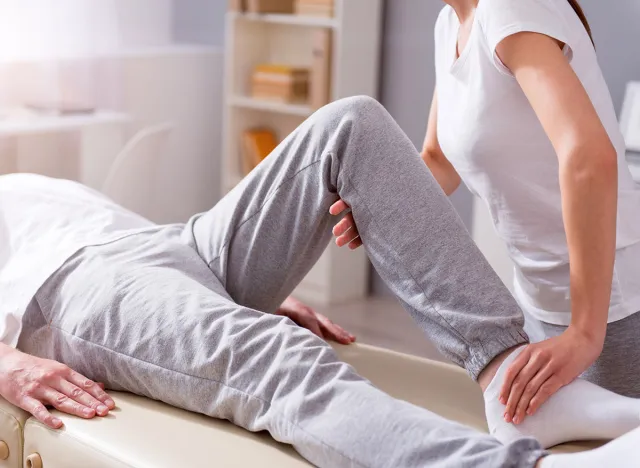
When women are going through menopause, their bone loss accelerates for three to five years, according to Atkinson. This can lead to injuries such as bone fractures—especially due to falls.
💪🔥Body Booster: Atkinson suggests strength training as the most effective way to slow bone loss. "Stay strong and work on your balance as you age, too," she says. "Estrogen was protecting bones before, and now, since it's lower or gone, you've got to get into the weight room. The good news is just twice a week, working major muscle groups will help!"
Your Muscle Loss Accelerates
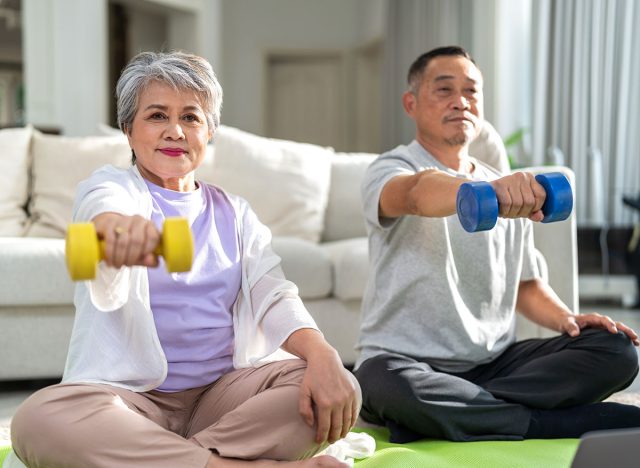
Atkinson explains that muscle loss has been occurring since peak muscle mass at age 25—unless you've been strength training to compensate. However, those losses become more significant after 50 when the production of hormones—like human growth hormone and testosterone—is reduced. "Production of those hormones does slow with age, and you can't completely stop that," she says.
💪🔥Body Booster: While you can't change mother nature, you can alter your habits—"like making sleep a priority because that's when hormones are released by your body," Atkinson points out. Also, stop long endurance training and opt for short intervals and weight training instead—such as HIIT. "Work hard for a short time—in other words, hit it and quit it!"
You Experience Muscle Fiber Loss
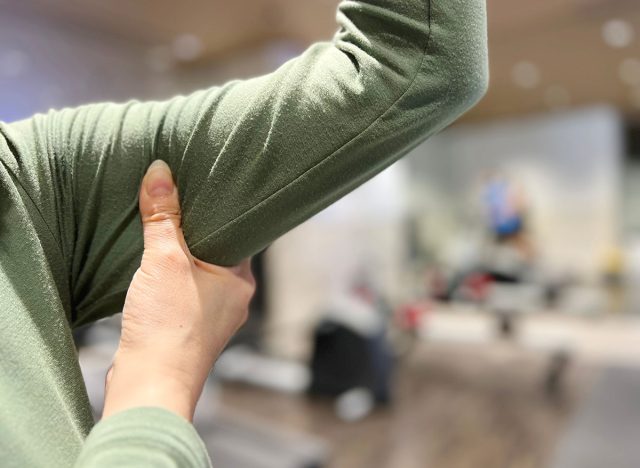
Atkinson explains that you lose some muscle fiber types faster than others. "Fast-twitch muscle fiber losses begin to be more apparent—in fact, you lose them two times as fast as slow-twitch fibers," she explains. "This fact should set off an inner alarm to anyone who wants to keep their independence into their 70s, 80s, and beyond," adds Adam Friedman, CSCS, SFG, CN. He explains that fast-twitch muscle fibers are responsible for helping you to quickly regain your balance if you trip or jump out of the way of a distracted passer-by. "When you lose this ability, you are more prone to falls and injuries that can alter your quality of life."
💪🔥Body Booster: "To be proactive in prevention, I recommend including weekly exercises that target your fast-twitch fibers," says Friedman. "That means using progressive overload resistance training or using lighter resistance with increasing speed." Atkinson agrees that stimulation is critical. "If you play racquet sports, pickleball, or you dance, you're getting great fast-twitch stimulation. Otherwise imagine you're jumping rope or playing hopscotch. You need a few minutes regularly to boost that fast-twitch fiber," she adds.
Your Body Stores More Fat

As we age, our bodies store fat more readily and burn fat more reluctantly, especially when we are stressed or dehydrated. "The drop in estrogen amplifies the negative effects of stress and stops diverting fat into areas for reproduction," Atkinson explains. So, you end up losing that hourglass shape and gaining weight around the belly easier.
💪🔥Body Booster: First of all, be aware you don't have as much wiggle room as you used to for sweets and treats, Atkinson says. "And use protein and fiber to your advantage," she adds. "Together, they help kill cravings and keep you full longer so you can avoid temptation."
Related: I Lost 100 Pounds and This Is the Secret to Success
You Lose Flexibility

You don't see many people in their 50s doing the splits, and there is a reason. "After age 50, your body loses flexibility, which makes you more prone to muscle injuries," states Allen Conrad, BS, DC, CSCS of Montgomery County Chiropractic Center in North Wales, PA. "Muscles and tendons lose elasticity, and spinal discs degenerate as we age, which makes us more likely to get injured."
💪🔥Body Booster: Dr. Conrad urges the importance of incorporating forms of alternative healthcare into your routine, like chiropractic care, stretching, and massage therapy, as you hit your 50s. "This will help prevent injuries, and improve the recovery time when you do get injured," he maintains.
Your Skin Changes
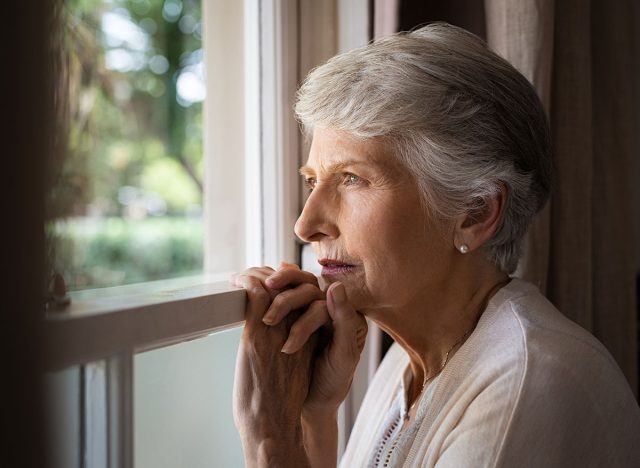
Just as our bodies age as we get older, so does our skin. "Skin becomes crepe, and the appearance of cellulite is more prevalent," Atkinson says. "That's a drop in collagen production thanks to a lack of estrogen."
💪🔥Body Booster: Atkinson suggests boosting collagen intake by drinking more bone broth and adding collagen powder to your smoothies or coffee. "Just don't confuse collagen protein with the rich amino acid protein that your muscle needs," she said. "You want them both."
You Are More Susceptible to Injuries
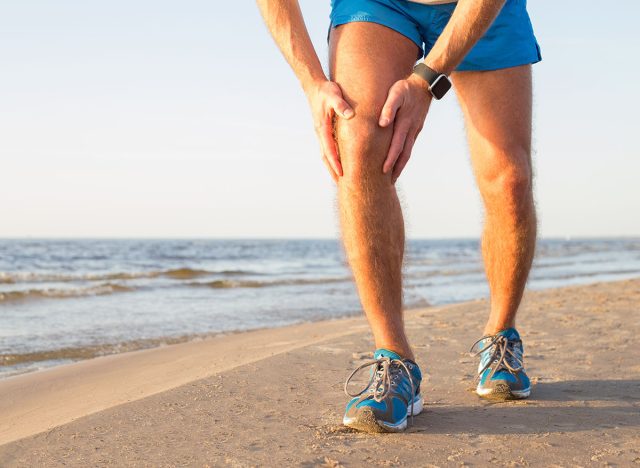
During hormonal changes, women are more susceptible to injuries like plantar fasciitis, carpal tunnel syndrome, and tendinitis—though it's not precisely clear how—says Atkinson.
💪🔥Body Booster: To help prevent injury, Atkinson suggests doing more extended warm-ups and cooldowns. Also, vary your exercise and try to avoid repetitive movements. "Even at your desktop all day, take breaks frequently and stretch your forearms," she suggests. "When you're lifting weights, keep your joints in alignment and have a trainer observe you for small things you might be doing that could put torque on those susceptible joints."
Your Body Synthesizes Protein Less Effectively
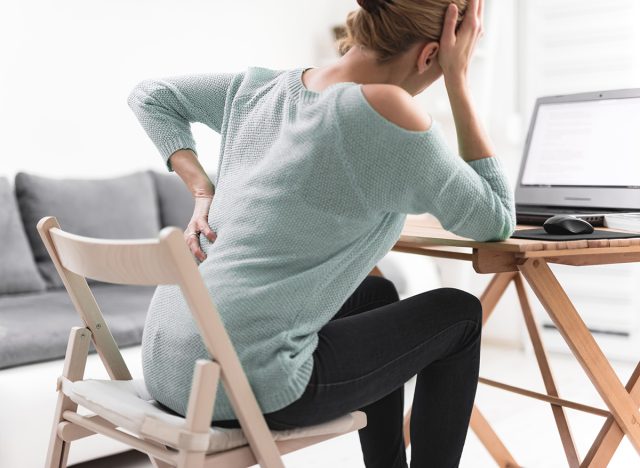
Atkinson explains that your body synthesizes protein less effectively than it used to after you reach 50—so muscle losses can be accelerated in those who don't eat adequate protein in their diets. "That, too, is thanks to more years on the planet!" she says.
💪🔥Body Booster: Atkinson says that the best method to deal with this is being active. "Being active means you're better at protein synthesis than if you were sedentary," she explains. "So stay active and then follow strength training with a high protein meal about an hour or two afterward. Strength training improves muscle protein synthesis!"
Your Libido Declines
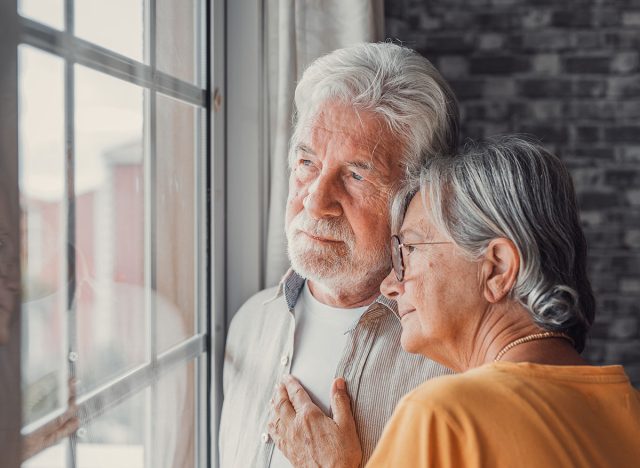
After experiencing menopause, most women report a decline in libido, explains Atkinson.
💪🔥Body Booster: To boost libido, women need more testosterone and growth hormone and less cortisol, Atkinson explains. "Putting an end to long endurance exercise and getting plenty of sleep will help," she explains. She suggests opting for strength training twice a week and short interval training sessions 1-2 times a week. Also, reduce the amount of alcohol and sugar you consume can also help in boosting libido.
Your Feet Will Change Shape
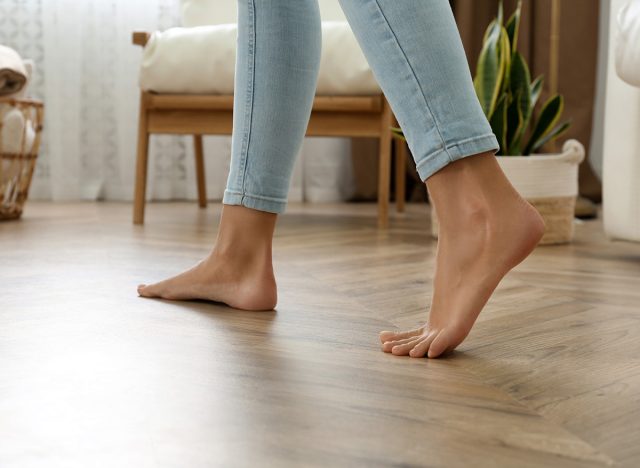
No, it's not your imagination. As you age, your feet are getting longer and wider. "They can grow half a size in a decade," explains New Jersey Podiatrist Velimir Petkov, DPM. "Our feet also flatten as we age because the tendons and ligaments in them lose their elasticity. Weight is also a contributing factor."
💪🔥Body Booster: Dr. Petkov suggests having your feet measured every few years to ensure that you are buying the right shoe size.
You Might Develop Foot Conditions
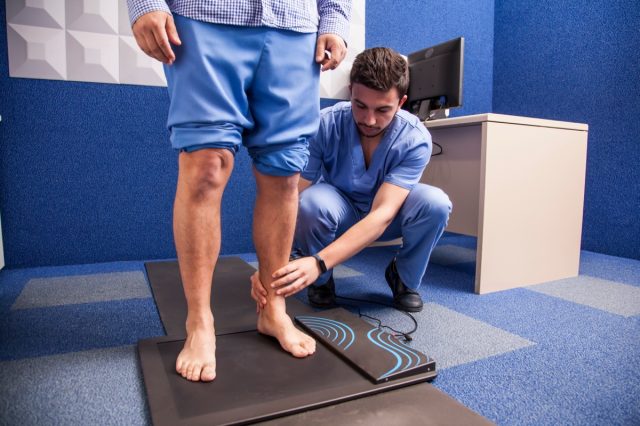
Some people develop foot deformities such as hammertoes and bunions as they age, adds Dr. Petkov. "These are typically hereditary, but the types of shoes you choose to wear and your activity level play a part as well," he explains.
💪🔥Body Booster: Don't try to squeeze your feet in shoes that are too tight. "That will only worsen the problem," he says.
You Are More Prone To Arthritis
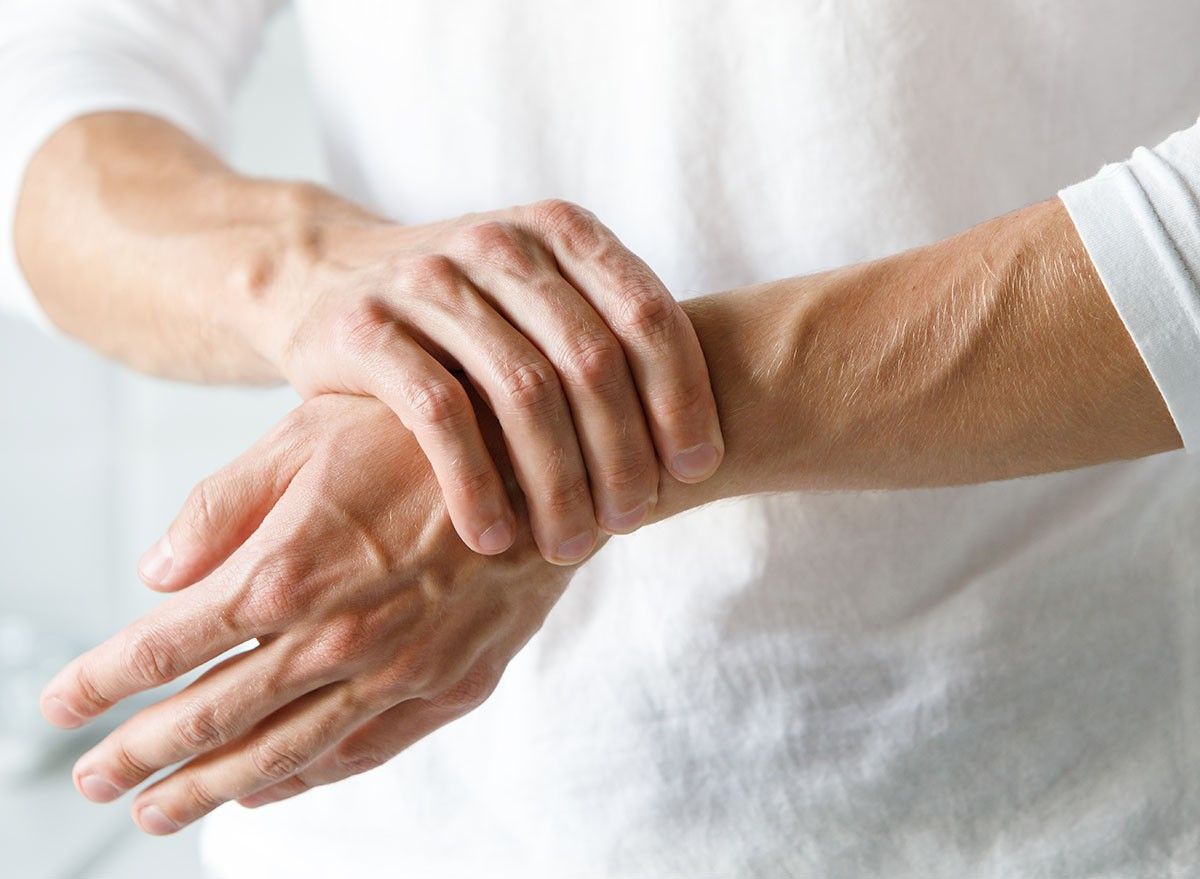
Unless you don't own a television, you are well aware that arthritis is a significant issue with people over 50—and not just in your hands. "Rheumatoid Arthritis typically appears in both feet while Osteoarthritis affects one foot," explains Dr. Petkov. "It is caused by inflammation of the cartilage and joints." Suffering from arthritis can lead to decreased activity levels and mobility.
💪🔥Body Booster: Dr. Petkov suggests investing in proper footwear and custom shoe inserts and doing your best to stay active. "Working out 2-3 times a week helps maintain good joint function," he says. Also, seek professional medical help to treat the symptoms.
You Are More Prone To Calcium Deficiency
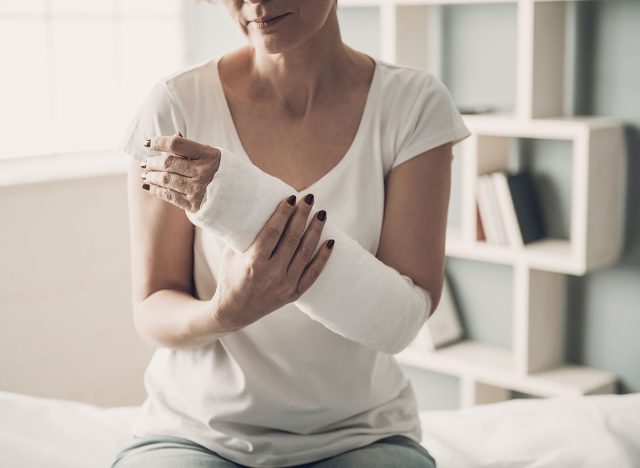
Calcium deficiency is widespread in people over 50, Dr. Petkov points out. "It depletes the calcium in your bones, which weakens them." This can lead to osteoporosis, bone pain, and tenderness, as well as fractures that occur as a result of minor trauma.
💪🔥Body Booster: Make sure you are getting enough calcium. "It is recommended that you get at least 1,200 mg of calcium per day," Dr. Petkov says, pointing out that yogurt, milk, and cheese are excellent sources of calcium. Not a big fan of dairy products? He suggests a cup of unsweetened soy milk, which has 140 mg of calcium, or other calcium-rich foods such as raw kale, oranges, broccoli, edamame, sesame seeds, almonds, tofu, as well as baked and kidney beans.
Your Fat Will Redistribute

One thing that happens when your body stores more fat is that it will also redistribute it, totally changing the way your body looks. "When women are of childbearing age, their fat is distributed to their hips and thighs to support pregnancy, etc. When they age, and especially during menopause, that changes, and when the body produces less estrogen, the fat zeroes in on the belly – commonly known as menopause belly," explains fitness expert Denise Austin.
💪🔥Body Booster: Austin recommends a three-prong approach: eating clean and healthy, cardio to burn overall body fat, and targeted exercise to strengthen the core.
RELATED: 5 Simple Ways to Debloat Your Body
You Might Develop Dry Mouth
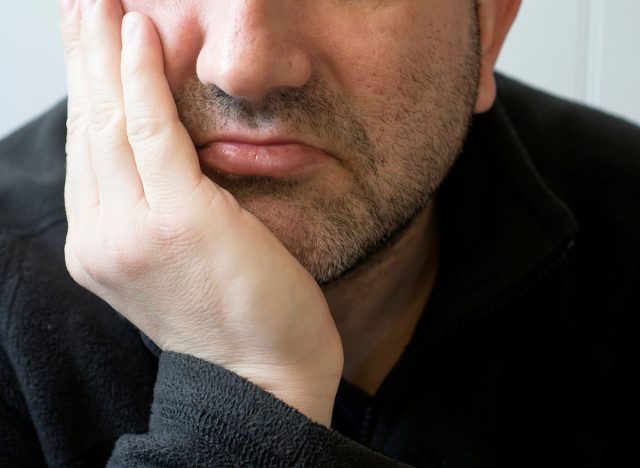
According to Mike Golpa, DDS, Director of G4 by Golpa, dry mouth is a common occurrence for those over the age of 50. "Chronic dry mouth comes with many popular medications for common senior issues like high blood pressure, Parkinson's, and arthritis, as well as being a symptom of diabetes, arthritis, and other ailments," he explains. "It isn't very often talked about by physicians or dentists alike." And, unfortunately, dry mouth can lead to more cavities and tooth decay ("less saliva means less natural washing of your teeth"), gum disease ("less saliva allows plaque to build up along and under the gum line"), and fungal infections (less saliva allows fungus to grow on your tongue, throat, and other areas).
💪🔥Body Booster: Dr. Golpa points out that there are many methods to alleviating dry mouth. These include using sugar-free gum and hard candies, as they stimulate saliva production, keeping hydrated by drinking lots of water, brushing and flossing regularly to remove plaque and stuck-on food that your saliva isn't washing off, and speaking with your physician. "If one or more of your meds is causing dry mouth about possible alternatives," he says.
You Might Become Lactose Intolerant
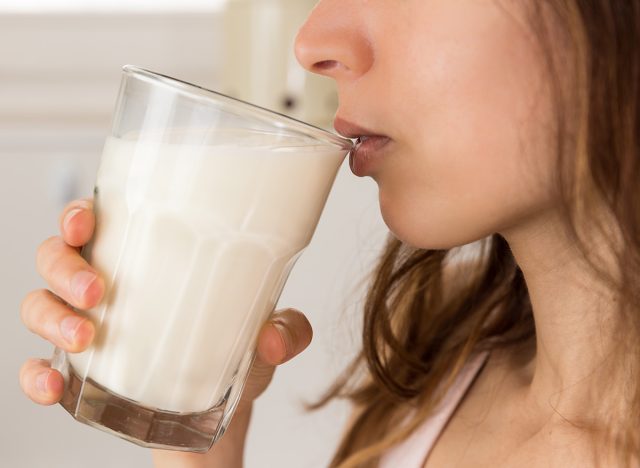
McKenzie Caldwell, MPH, RDN, a dietitian based in Charlotte, NC, focusing on women's reproductive health, diabetes, intuitive eating, and eating disorder recovery, points out that dramatic bone density drops during and after menopause because of natural drops in estrogen. However, lactose intolerance is relatively common in middle-aged women, making it difficult for many to drink milk, the most commonly thought of bone-building food.
💪🔥Body Booster: Caldwell suggests exploring lower-lactose dairy products—like kefir, greek yogurt, and hard cheese—or other sources of calcium like tofu, soy milk, and leafy greens. "These can help you maintain healthy bones as you age," she says.
Your Brain May Weaken
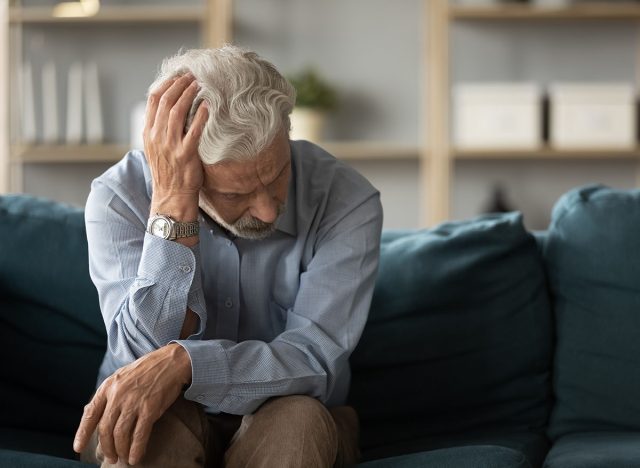
Along with your body, your brain weakens with age, according to Healthy Living Expert and author of Stay Young: 10 Proven Steps to Ultimate Health, Judy Gaman, MS, BSHS.
💪🔥Body Booster: "People over 50 need to exercise their brain. Think of the brain as a muscle. If you don't use it, it will shrink and become weak," says Gaman. "The simplest way to keep the brain healthy is to do new things, breaking the monotony of life, and instead step out of the comfort zone. They change things up and force the brain to be in active mode. All too often, we drive the same streets, eat the same meals, see the same people, and stick to our routine. While these routines may bring comfort and familiarity, they can also cause the brain to become dull. Stepping outside of routines will sharpen the mind and slow the aging process."
Pelvic Floor Disorder Is Likely
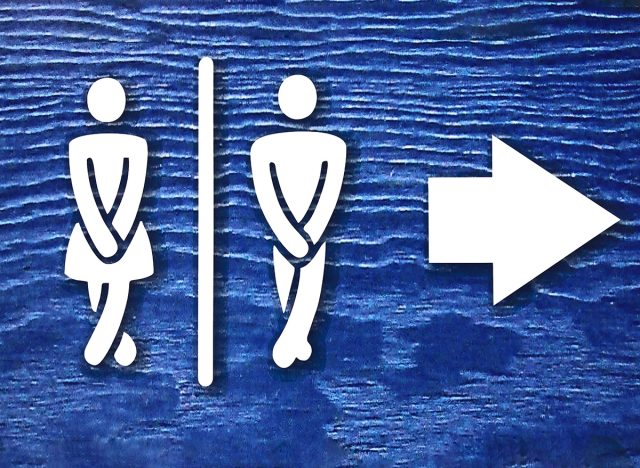
Certified personal trainer Courtney Virden points out that over half of women over 50 experience pelvic floor dysfunction—which can lead to a variety of other issues. "The most common symptoms are bladder issues, organ prolapse, vaginal dryness, and low libido," she explains.
💪🔥Body Booster: One of the leading causes for this is that the pelvic floor muscles are not trained. "They should be trained and worked out like the rest of our muscles, but are so often overlooked," Virden points out. "With age and lack of training, our muscles often have an altered length-tension relationship which leads to dysfunction and issues."
Your Hair And Nails Will Weaken
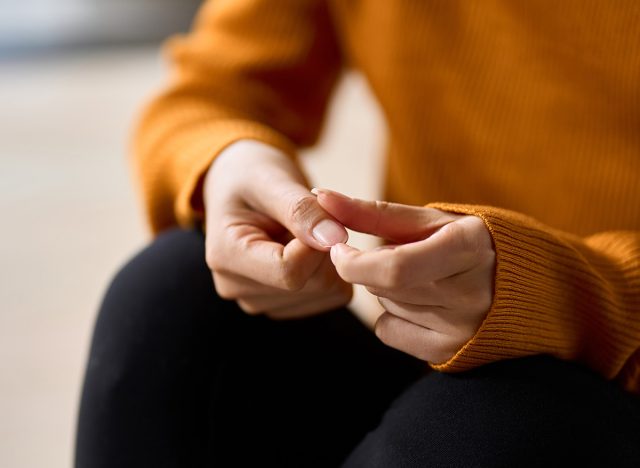
Just as our skin loses its elasticity, we may also notice changes in our nails and hair. "Many people over 50 experience brittle nails and hair that break often and do not grow as quickly," explains Occupational Therapist & Consultant Brittany Ferri, MS, OTR/L, CCTP, Owner & Founder of Simplicity of Health.
💪🔥Body Booster: Amping up calcium intake can make a huge difference when it comes to hair and nails.
Your Eyesight May Also Weaken

It's no secret that the older you get, the worse your eyesight is. "This causes most people over the age of 50 to have difficulty seeing in the dark and judging distance and depth," explains Ferri. This can impact someone's ability to drive, especially at night or early in the morning, as well as navigate their home environment safely.
💪🔥Body Booster: Stay on top of your eyesight and have your eyes checked frequently. If you have trouble with your night vision, you should probably stay off the road when it gets dark.
You'll Have More Dental Issues
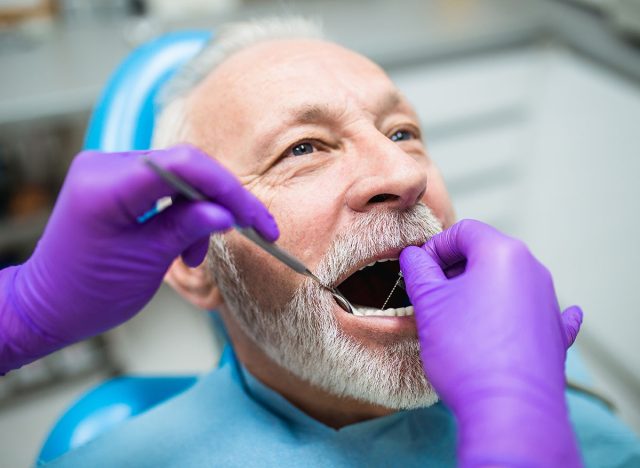
Because tooth enamel erodes as you age, people over the age of 50 may have an increase in cavities, tooth pain, or dental issues that require increased care, points out Ferri.
💪🔥Body Booster: Stay on top of your dental care!
Your Short-Term Memory Changes

"One of the most notable cognitive changes that may occur is poor short-term memory, which can impact simple daily tasks and routines that have been in place for years," points out Ferri. Cognition also changes in the form of judgment, with some people experiencing slowed reaction times and poor body awareness.
💪🔥Body Booster: Keep your cognition fine-tuned with memory games, memory-boosting activities, and staying active in general.
Your Testosterone Levels May Decrease

Generally speaking, testosterone levels tend to decrease as men age, especially after 50, points out Stanton Honig, MD, director of Male Urology at Yale Medicine. "This may result in increased fat, decreased muscle mass, and more difficulty with maintaining muscle mass," he says. Besides, the prostate tends to grow in men over the age of 50, and in some patients, it may result in urinary symptoms such as getting up a lot at night, frequent urination, and urgency to run to the bathroom.
💪🔥Body Booster: Dr. Honing explains that a healthy lifestyle helps avoid low testosterone. "Eating better and exercising can improve matters for men diagnosed with the condition; many also have other health challenges, such as obesity or diabetes, which lifestyle changes can help," he says. Additionally, testosterone therapy can be prescribed for men with low testosterone caused by an androgen deficiency, but this is more for sexual interest than hardness. "If the doctor determines that there are psychological rather than health-related roots to his erectile issues, such as depression, stress or anxiety, antidepressants or anti-anxiety medications can be helpful," he adds. Or, if there are relationship problems, consider counseling. And if you enjoyed this article, take advantage of these 20 Superfoods for People Over 50.




